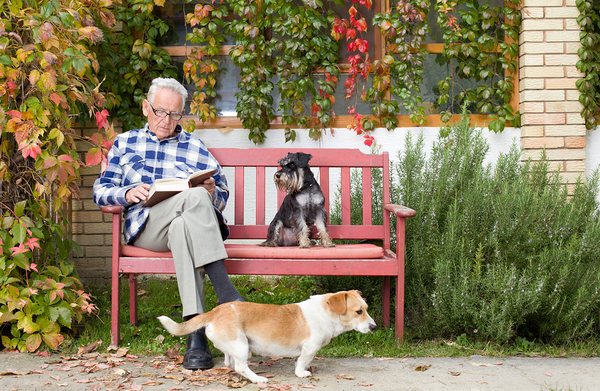It’s been a while since we last posted here, and we have made some big changes since then. While we have been busy continuing to provide quality in-home care to clients in Pierce and King counties, we have also been expanding our services to clients across Washington state. Here’s a quick timeline of what we have been up to in the last couple of years, and what you can expect from us (and this blog) in the future!
Welcome to the First Choice In Home Care Blog!
[fa icon="calendar'] Apr 10, 2025 3:53:26 PM / by Sabrina Enders posted in Caregiver, Professional Caregiver, Washington State
Dehydration
[fa icon="calendar'] Aug 30, 2018 5:08:06 PM / by First Choice posted in Nutrition, Washington State
First Choice In-Home Care has partnered with the Washington State Department of Social & Health Services to ensure that our caregivers receive information and tips to make your job easier and safer. The following PDF from the Washington State Department of Social & Health Services is a great reminder of the importance of remaining hydrated. We encourage all to take a moment and read through the article and recognize the impact of dehydration on your body.
Commentary - Washington State House and Senate Budget Concerns
[fa icon="calendar'] Jun 16, 2017 2:04:07 PM / by First Choice posted in Washington State, Budget for home care
The following article was published in the Everett Herald on June 4, 2017 as a concern over the State of Washington recent budget cuts related to home health care.
5 Traits Required for Home Health Care Providers
[fa icon="calendar'] Apr 10, 2017 5:29:00 PM / by First Choice posted in In-Home Health Care, Caregiver, Professional Caregiver
Beyond the obvious "hard" skills required of home health care providers, what soft skills do you need to succeed? These five traits are a great place to start.
Pets and Home Health Care
[fa icon="calendar'] Mar 28, 2017 1:00:00 PM / by First Choice posted in In-Home Health Care, Aging, Caregiver
Not every decision is clear cut, however. For instance, should you let a senior with failing health continue to own a beloved pet?
Keeping Safe When Providing Home Care Assistance
[fa icon="calendar'] Mar 14, 2017 4:01:00 PM / by First Choice posted in In-Home Health Care, Professional Caregiver
The good news? There are some things home health workers can do to minimize risk and maximize safety while working in non-hospital settings. Read on for a roundup of five tips aimed at keeping in-home caregivers safe.
The Value of Support Groups for Senior Care Providers
[fa icon="calendar'] Mar 1, 2017 9:49:00 AM / by First Choice posted in Senior Care, Caregiver
On average, family caregivers spend 24.4 hours per week providing care and 25 percent of caregivers actually spend 41 or more hours per week doing so. Caregivers provide senior care in the form of support with activities of daily living as well as performing tasks such as grocery shopping, housekeeping, transportation, and so on.
If you are one of these caregivers, you are to be commended. Being the primary caregiver for a senior whose mental or physical health is declining is one of the most stressful and challenging jobs you will likely ever have. For this reason, you may find that you need some additional support to handle your situation.
4 Tips to Help You Avoid Caregiver Stress
[fa icon="calendar'] Feb 17, 2017 11:24:00 AM / by First Choice posted in In-Home Health Care, Senior Care, Caregiver
However, sometimes caregivers fall prey to a different level of stress, one that is not natural or healthy. How can you know if your stress level is approaching this level? And what can you do to handle your stress effectively as a caregiver?
Symptoms of Caregiver Stress and Caregiver Burnout
The Alzheimer's Association provides a list of stress symptoms that caregivers should never ignore. They are:
- Denial of the seriousness of your loved one's condition
- Anger
- Social withdrawal from friends and activities that you once considered pleasurable
- Anxiety
- Depression or apathy
- Exhaustion
- Sleep disturbances
- Irritability
- Inability to concentrate
- Health problems that seem to linger, or follow closely one after another
If these symptoms are not addressed promptly or appropriately, you may fall victim to a more severe condition known as caregiver burnout. With this condition, the symptoms mentioned above become even more pronounced, and your ability to function and provide adequate care for your loved one or even for yourself is compromised.
Considering the serious effects of caregiver stress and caregiver burnout, it makes sense to seek help as soon as you recognize any of the symptoms mentioned above.
Tips for Caregiver Stress
The good news is that you can manage caregiver stress effectively if you pay heed to what your body and mind are telling you. Here are some tips for relieving caregiver stress:
1) Cultivate a smidgen of selfishness: As the primary caregiver for a loved one, you are likely accustomed to putting your needs on the back burner. This, however, is not always a sustainable strategy. Your needs are just as important as the needs of the one for whom you are caring, and you cannot deny that and still remain physically and emotionally healthy.
Practice a mindful approach to self-care. Pay attention to your body and your spirit. Take time each day to re-connect with the inner you, even if it is only for a few minutes.
2) Assert your independence: Caring for a loved one can narrow your world view down to just the small space of your senior's orbit. Resist the inclination to limit your focus to the failing health of your loved one. Assert your independence by remembering who and what you are, apart from your role as caregiver.
3) Breathe: Something as simple as breathing can help you reduce stress. Just as deep breathing can help women endure the pain of childbirth, so too, can deep breathing help you relax. Take a few minutes each day to sit somewhere quiet and simply breathe deeply in and out for several minutes.
4) Tap home health care for help: One of the best ways to relieve caregiver stress is to find outside help to take some of the load off your shoulders. The truth is that, even though you are indispensable to your loved one, there are other people who can take some of the routine tasks off your plate, giving you time to handle more important matters.
Home health care is an excellent way to get help for your senior and relieve your own stress levels in the process. Home health care workers will help your loved one with activities of daily living, such as bathing, grooming, toileting, eating, and so on.
Home health care workers provide respite care so that you can have some time away from a stressful situation. Sometimes respite care for even a few hours can revitalize your spirit to handle your responsibilities.
An added advantage of home health care workers is that your loved one benefits from interaction with someone new as well. This can lower your loved one's stress levels also, making the situation better for everyone concerned.
The Bottom Line
Providing good care for your senior need not send you into debilitating stress. Remaining in touch with your own feelings, taking time to care for yourself, and using available home health care resources can help you to provide your loved one with excellent care, while still maintaining a balanced lifestyle for yourself. Contact us today to request help for your loved one, and take control of the stresses in your life.
Senior Care: Concerns about Chronic Health Problems
[fa icon="calendar'] Feb 7, 2017 11:37:00 AM / by First Choice posted in In-Home Health Care, Senior Care, Caregiver
Older adults living with these and other chronic conditions may find it difficult to manage their illness alone. As a caregiver, you may be wondering if and when to step in to help an aged loved one to shoulder the burden of chronic illness. Here are some factors to consider which will help you provide the support and care your older one requires.
Dealing with Loss of a Patient: When the Need for Home Care is Over
[fa icon="calendar'] Feb 3, 2017 8:20:00 PM / by First Choice posted in In-Home Health Care, Senior Care, Caregiver
When a beloved family member dies, it is natural and expected that the bereaved family will grieve. Often, however, the family and friends of the deceased are not the only ones grieving the loss. Professional home caregivers also feel a great loss when a client dies.
However, unlike the family of the one who passed away, professional caregivers are often expected to simply shut down their feelings of grief and move quickly to a new client assignment. This unrealistic expectation can lead to serious emotional issues for professional caregivers. If someone for whom you provided care for some time has died, what can you do to process your grief and move on?










